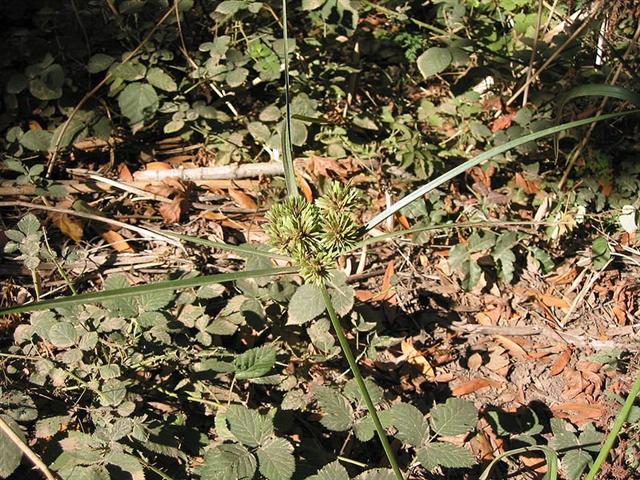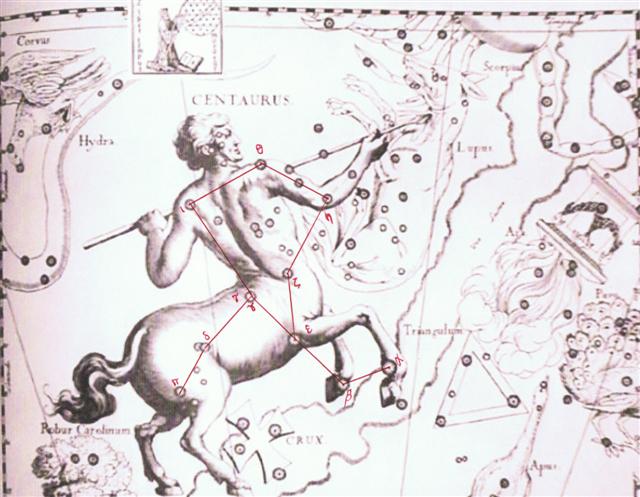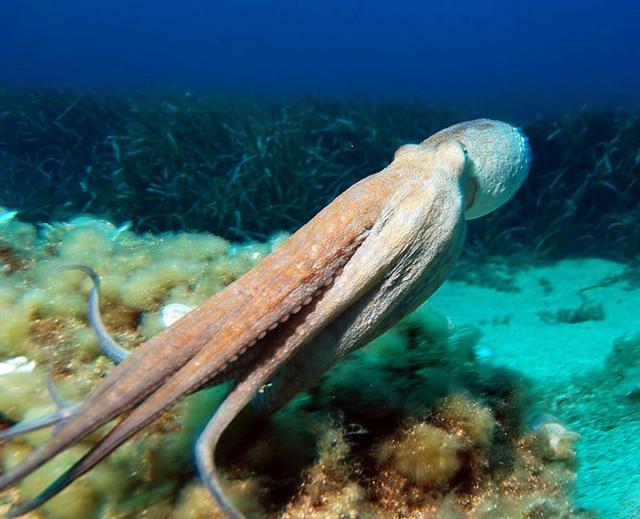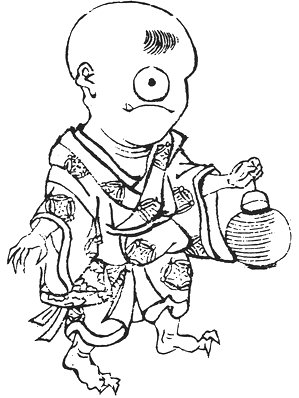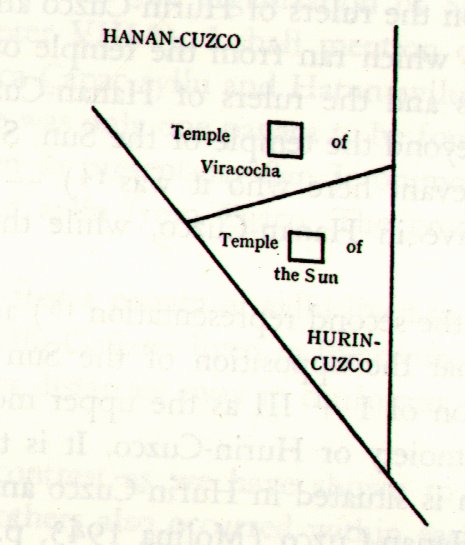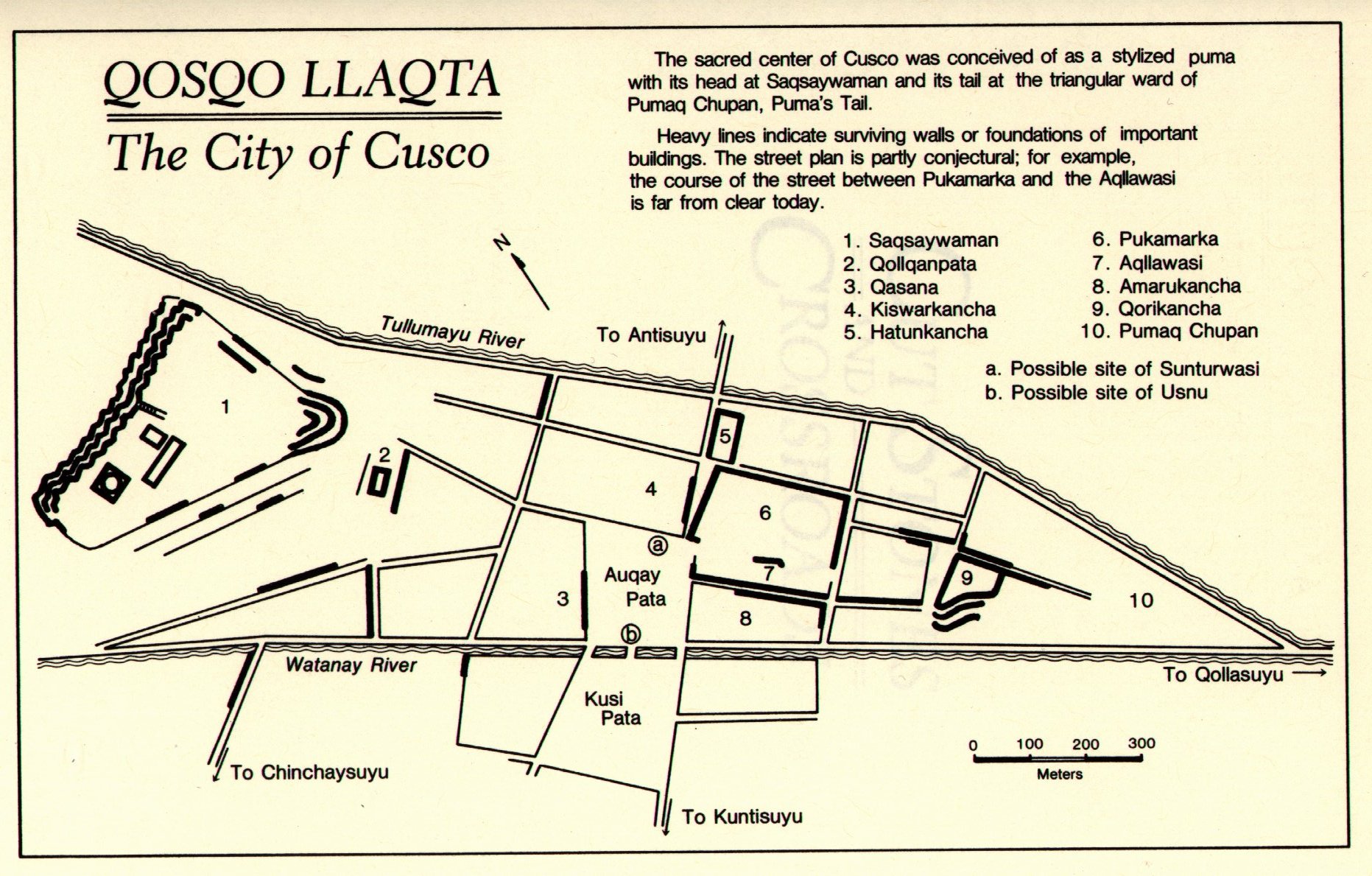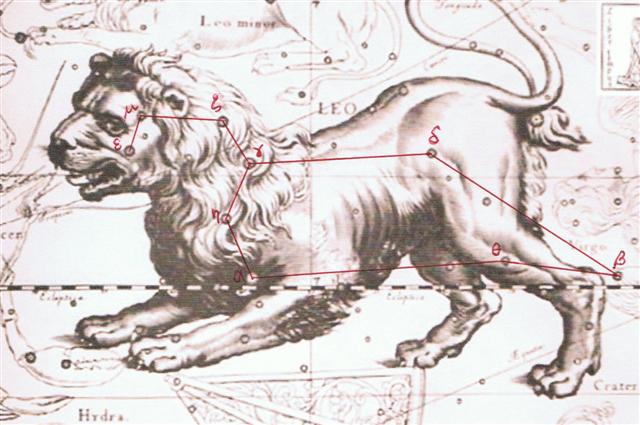Hotu arrived to Easter Island in Tangaroa Uri 15, they said. ... The canoes of Ava Rei Pua and of Hotu were seen near the (off-shore) islets. On the fifteenth day of the month of October (tangaroa uri) the canoe of Hotu and the canoe of Ava Rei Pua landed. On the fifteenth day of the month of October (tangaroa uri), Nonoma left the house during the night to urinate outside. At this point Ira called out to Nonoma, 'Look at the canoe!' Nonoma ran, he quickly went to Te Hikinga Heru (a ravine in the side of the crater Rano Kau) and looked around. There he saw the double canoe way out near the (offshore) islets, and the two (hulls of the canoe) were lashed together. He ran and returned to the front of the house. He arrived and called into the house: 'Hey you! This canoe has arrived during the night without our noticing it!' Ira asked Nonoma, 'Where is the canoe, which you say is lying out there (in the water)?' Nonoma's voice came back: 'It is out there (in the water) close to the (offshore) islets! There it lies, and the two (hulls) are lashed together.' The name of the ravine Te Hikinga Heru ought to give clues to the deeper meaning. For instance is the plant Hiki kioe (Rat's Tail), suggestive. The tail of a rat is his end. As long as the tail of something remains it is not yet finished. "In the realm of beliefs, the rat figured in the heva custom. If a kinsman had been murdered and the murderer was still at large, the avenger, in a state of rage, took a rat between his teeth and began to search for the murderer. Only when he had found out the name of the murderer did he let the rat, which by then might be in a state of decomposition, fall to the ground and went and avenged the killing." (The Eighth Island.)
The plant in question, at least in the picture below, has 6 long stiff blades distributed evenly, i.e. the opposite of the serpentine 8 arms of an octopus:
If Hotu was personifying the Full Moon, then he should be at the opposite side of the sky compared to the Sun. When the Sun reached Raven Hotu had to reach the Phoenix. If Tangaroa Uri 15 was October 15 (288) then his arrival to Easter Island would have coincided with Hotu reaching April 15 (105 = 288 - 183). So what? It was the Sun who created 'dawn' on Easter Island when he was in his month October. Although Hotu ought to have moved to Easter Island at the time when the Sun reached Raven - Sun and Full Moon had to move together (like the sea-going canoes of Hotu and Ava Rei Pua) - it may have taken some time, some days, for Hotu to reach the island: "... the voyage of the immigrants lasted from September 2 to October 15. The explorers' journey, on the other hand, was one week shorter and lasted from April 15 to June 1. The difference of one week may have been due to seasonal wind factors or to the type of vessel used. At any rate the duration of the voyage falls far short of the 120 days that Thomson attributes to the journey (PH:526)." (The Eighth Island.) I have suggested we maybe should use months which sometimes are shorter than those in our Gregorian (or Julian) calendar. The voyage of Hotu would then have taken him 27 + 15 = 42 days, which is shorter than those 46 = 14 + 31 + 1 days used by the explorers:
From 'April 15' to 'October 15' there could have been 46 + (28 + 31 + 29 + 1) + 42 = 46 + 89 + 42 = 177 = 6 * 29½ days. I have also suggested we maybe should count days either from 0h (zero) at the the time of the Gate of the Goat - Haedus II - (which is 11 glyphs later in the G text than 0h at the Hyades Gate, Hyades II) or to count 91 days from a zero day at the December solstice (11 days earlier than January 1).
When the Sun reached α in the Southern Triangle (the 'atrium of the heart' so to say) it would have been SEPTEMBER 26 at the time of the Hyades Gate, i.e. 64 days earlier in the Sun calendar than day 333 (November 29) at the time of rongorongo. Atria is the rightmost star in the triangle, with γ at left and β at the apex:
This date (when the Sun reached Atria) ought at the time of the Haedus Gate to have been around 11 days earlier than SEPTEMBER 26, i.e. 64 + 11 = 75 days earlier than November 29. 333 - 75 = 258 = 178 days after 0h. In order to reach the date TAGAROA URI 15 we have then only to count with some months being shorter than in the Gregorian calendar. 'November 2 (*226) - (75 - 27) = Tagaroa Uri 10 (*178). And Tagaroa Uri 10 (*178) + 5 = TAGAROA URI 15 (*178). I have in my calendar table above translated TAGAROA URI neither with October nor with 'October, but with 'October'. The main reason for Hotu arriving so late in our Gregorian calendar could possibly have been Julius Caesar. He inserted July and August as new months into our Sun calendar, he added 62 days in the hottest part of the year. Before this October had been the 8th month, but now it moved away.
When Raven at the time of the Haedus Gate had been at the Sun this should have been around September 21 (264) - 75 = 189 (July 8). Or we could count from the September equinox: (265) - 62 = 203 (July 22) in order to find the situation as it was before Caesar's intervention. Probably once upon a time 22 was a generally acknowledged alias for π (approximately = 22 / 7): ... Odysseus and his fleet were now in a mythic realm of difficult trials and passages, of which the first was to be the Land of the Cyclopes, 'neither nigh at hand, nor yet afar off', where the one-eyed giant Polyphemus, son of the god Poseidon (who, as we know, was the lord of tides and of the Two Queens, and the lord, furthermore, of Medusa), dwelt with his flocks in a cave. 'Yes, for he was a monstrous thing and fashioned marvelously, nor was he like to any man that lives by bread, but like a wooded peak of the towering hills, which stands out apart and alone from others.' Odysseus, choosing twelve men, the best of the company, left his ships at shore and sallied to the vast cave. It was found stocked abundantly with cheeses, flocks of lambs and kids penned apart, milk pails, bowls of whey; and when the company had entered and was sitting to wait, expecting hospitality, the owner came in, shepherding his flocks. He bore a grievous weight of dry wood, which he cast down with a din inside the cave, so that in fear all fled to hide. Lifting a huge doorstone, such as two and twenty good four-wheeled wains could not have raised from the ground, he set this against the mouth of the cave, sat down, milked his ewes and goats, and beneath each placed her young, after which he kindled a fire and spied his guests. Two were eaten that night for dinner, two the next morning for breakfast, and two the following night. (Six gone.) But the companions meanwhile had prepared a prodigous stake with which to bore out the Cyclops' single eye; and when clever Odysseus, declaring his own name to be Noman, approached and offered the giant a skin of wine, Polyphemus, having drunk his fill, 'lay back', as we read, 'with his great neck bent round, and sleep that conquers all men overcame him.' Wine and fragments of the men's flesh he had just eaten issued forth from his mouth, and he vomited heavy with drink. 'Then', declared Odysseus, I thrust in that stake under the deep ashes, until it should grow hot, and I spake to my companions comfortable words, lest any should hang back from me in fear. But when that bar of olive wood was just about to catch fire in the flame, green though it was, and began to glow terribly, even then I came nigh, and drew it from the coals, and my fellows gathered about me, and some god breathed great courage into us. For their part they seized the bar of olive wood, that was sharpened at the point, and thrust it into his eye, while I from my place aloft turned it about, as when a man bores a ship's beam with a drill while his fellows below spin it with a strap, which they hold at either end, and the auger runs round continually. Even so did we seize the fiery-pointed brand and whirled it round in his eye, and the blood flowed about the heated bar. And the breath of the flame singed his eyelids and brows all about, as the ball of the eye burnt away, and the roots thereof crackled in the flame. And as when a smith dips an ax or adze in chill water with a great hissing, when he would temper it - for hereby anon comes the strength of iron - even so did his eye hiss round the stake of olive. And he raised a great and terrible cry, that the rock rang around, and we fled away in fear, while he plucked forth from his eye the brand bedabbled in much blood. Then maddened with pain he cast it from him with his hands, and called with a loud voice on the Cyclopes, who dwelt about him in the caves along the windy heights. And they heard the cry and flocked together from every side, and gathering round the cave, called in to ask what ailed him. 'What hath so distressed thee, Polyphemus, that thou criest thus aloud through the immortal night, and makest us sleepless? Surely no mortal driveth off thy flocks against thy will: surely none slayeth thyself by force or craft?' And the strong Polyphemus spake to them again from out of the cave: 'My friends, Noman is slaying me by guile, nor at all by force.' And they answered and spake winged words: 'If then no man is violently handling thee in thy solitude, it can in no wise be that thou shouldst escape the sickness sent by mighty Zeus. Nay, pray thou to thy father, the lord Poseidon.' On this wise they spake and departed; and my heart within me laughed to see how my name and cunning counsel had beguiled him ... For various reasons I came to suspect Nonoma (Jupiter) might have had a rule (role) which ended in July 22. The English translation above of the Greek original has 'Noman' , which may have come from 'No-nomen', I speculated, not far away from No-noma. I decided to pursue this idea and found 'nominative' was originating from the Greek onomastiké, sounding even closer to Nonoma. The one-eyed people originated half a year earlier, it seems: ... In the morning of the world, there was nothing but water. The Loon was calling, and the old man who at that time bore the Raven's name, Nangkilstlas, asked her why. 'The gods are homeless', the Loon replied. 'I'll see to it', said the old man, without moving from the fire in his house on the floor of the sea. Then as the old man continued to lie by his fire, the Raven flew over the sea. The clouds broke. He flew upward, drove his beak into the sky and scrambled over the rim to the upper world. There he discovered a town, and in one of the houses a woman had just given birth. The Raven stole the skin and form of the newborn child. Then he began to cry for solid food, but he was offered only mother's milk. That night, he passed through the town stealing an eye from each inhabitant. Back in his foster parents' house, he roasted the eyes in the coals and ate them, laughing. Then he returned to his cradle, full and warm. He had not seen the old woman watching him from the corner - the one who never slept and who never moved because she was stone from the waist down. Next morning, amid the wailing that engulfed the town, she told what she had seen. The one-eyed people of the sky dressed in their dancing clothes, paddled the child out to mid-heaven in their canoe and pitched him over the side ...
Finally - I cannot end this page before having pointed out the Chinese 6th station, the Tail, which came in the day after Atria (the 'atrium'):
There were neither lions nor tigers on Easter Island - the only mammals on land were the edible rats. And the 'tail' of the Lion was in Hurin - the lower sector where water of course would accumulate:
|
||||||||||||||||||||||||||||||||||||||||||||||||||||||||||||||||||||||||||||||||||||||||||||||||||||||||||||||||||||||||||||||||||||||||||||||||||||||||||||||||||
